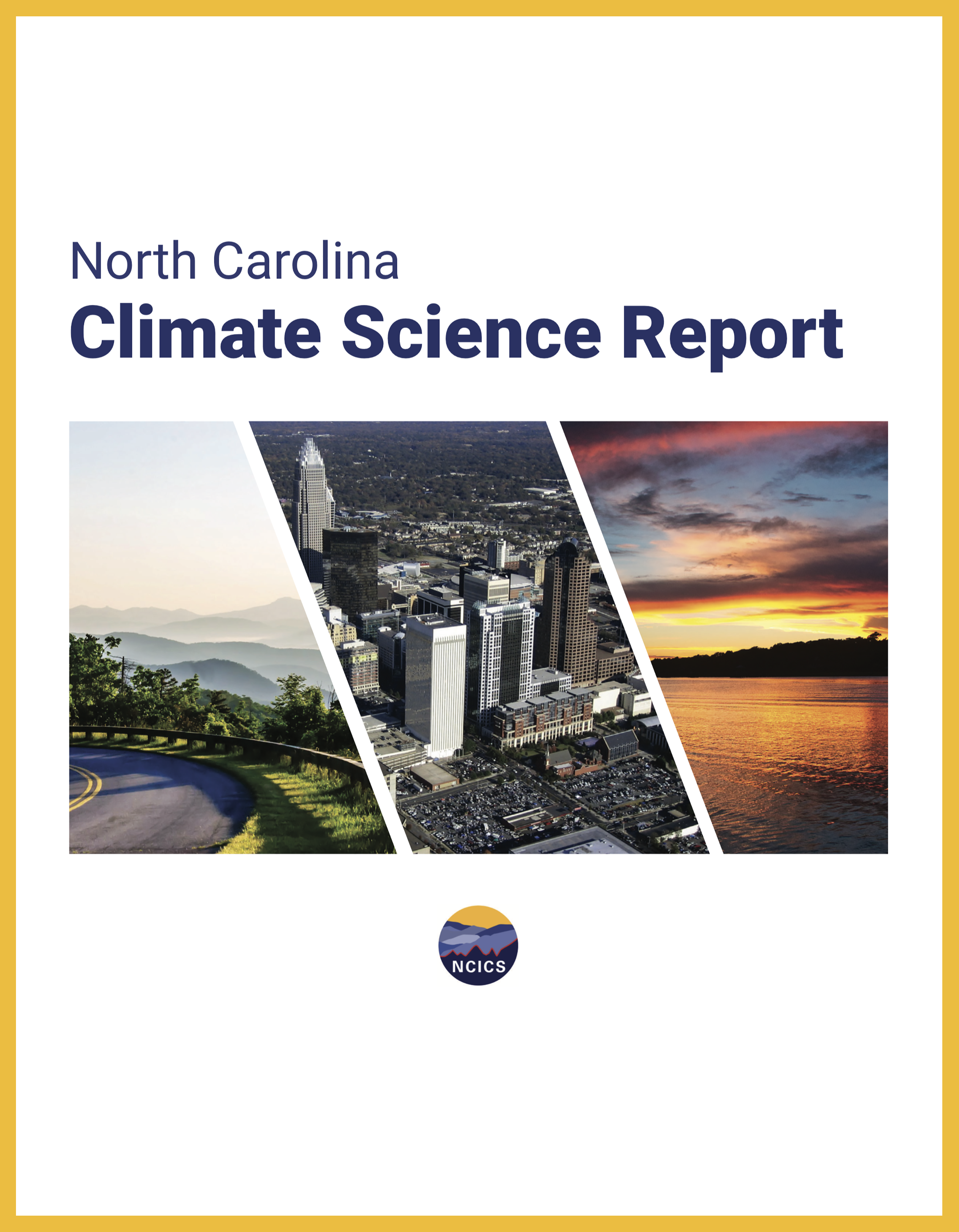 The North Carolina Institute for Climate Studies (NCICS) has released the North Carolina Climate Science Report, an independent assessment of observed and projected climate.
The North Carolina Institute for Climate Studies (NCICS) has released the North Carolina Climate Science Report, an independent assessment of observed and projected climate.
The report covers the entire state and organizes information into three regions: the Western Mountains, Piedmont and Coastal Plain. Information includes temperature and precipitation under increased greenhouse gas levels, as well as the impacts of urban heat islands and air pollution.
The report serves to inform readers of the past, present, and future of climate change and what steps are necessary for potential change. In particular, the report will inform responses to Governor Cooper’s Executive Order 80, North Carolina’s Commitment to Address Climate Change and Transition to a Clean Energy Economy, including the “N.C. Risk and Resilience Plan,” which the Department of Environmental Quality is developing. (For more on Executive Order 80 and the “N.C. Risk and Resilience Plan,” see “Carbon Sequestration and the Battle Against Climate Change“ in the Spring 2020 issue of Coastwatch.)
NC State University’s Kenneth Kunkel, NCICS’s lead scientist for assessments, assembled both the team that wrote the report and the Climate Science Advisory Panel that provided scientific oversight. The panel included scientists with national and international reputations in their specific areas of expertise. These climate authorities also applied information provided in previous national climate assessments and peer reviewed scientific journals.
The North Carolina Climate Science Report summary is here.
The full North Carolina Climate Report is here.
For more information, contact Tom Maycock at tmaycock@ncics.org.
adapted from this press release from the North Carolina Institute for Climate Studies